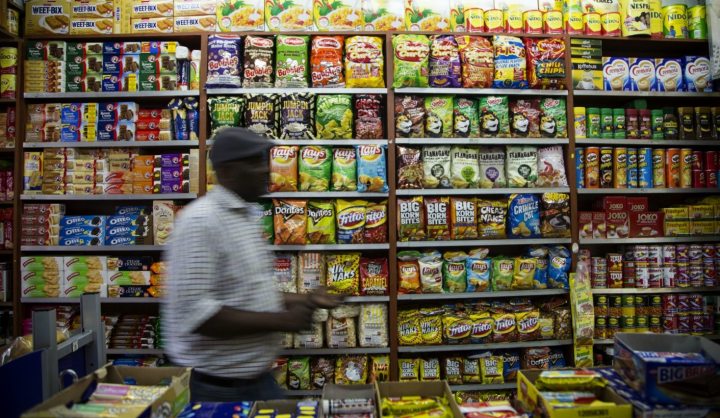South Africa
Letter to the Editor: Taxing misery cannot be progressive

Imraan Valodia and David Francis’s analysis of the key tax policy proposals in the 2017/18 budget is of great interest, but misguided. While we agree with many of their claims and welcome their progressive tone and ambitions, the article contains one fundamental error to which most on the left have succumbed. By FERRAN PORTELLA-CARBÓ.
This fundamental error underpins the author’s conclusion that the “VAT is in fact mildly progressive”. From this conclusion derives the following even more regressive conclusion:
From the perspective of the 2017-18 Budget, the problem with VAT in South Africa is not that it is regressive, but that it is not strongly progressive. In other words, because VAT is by far the largest proportion of the tax adjustment, the overall impact of the adjustment is spread more or less equally among all income classes.
All of these conclusions, in turn, derive from the observation that the rich pay a higher proportion of their disposable income in the form of VAT than the poor: from 9% for the poorest decile of the population ranked to 12% for the richest decile. Indeed, these figures can only seem plausible given the extensive zero-rating of basic groups. Thus, “income after VAT” is more equally distributed than “before VAT”. Nonetheless, concluding that the VAT is progressive is a non-sequitur.
The fact that more than half of the population is poor according to StatsSA own “optimistic” standards should suffice debunk the idea that the VAT is progressive in South Africa. How progressive is to suck purchasing power from people that cannot even meet elementary needs? True, income distribution improves because the rich, relative to disposable income, are more affected. Still, compare the human costs of falling further into misery with not being able to afford, say, a second luxury car. In other others, the lower relative fall of the purchasing capacity of the poor is still consistent with greater injustice.
The richest 10% (according to their market income) had an estimated disposable income of R166,803 per capita per year in 2011 (the same reference year as that used by Valodia and Francis). If we assume that their VAT incidence increases by 1pp, then the purchasing power of the richest falls by R1,668 to R165,135. For them, this fall is not life-changing at all. (But note that it would represent a huge impact for the poor because this figure is higher than the average market income of around 30% of the population. (I am using the same source as Valodia and Francis, The Distributional Impact of Fiscal Policy in South Africa, Policy Research Working Paper 7194, World Bank Group).
Thus, we derive radically different conclusions from the same “economic evidence”. May it be that its interpretation depends on the concrete material reality that structures it and political ideology? Marginally improving the distribution of income may appear progressive for many abstract liberal doctrines. However, these forget about the actual, barbaric levels of poverty and inequality in South Africa, and that the consequences for the life of the rich and poor of a proportional change in purchasing power differ –a difference that increases with the level of inequality. In our context, such “progressive” taxes and reforms condemn more than half of the population to further misery while the income and power of the filthy rich remains essentially unchanged.
From each according to his ability, to each according to his needs. This basic socialist principle appears to us as a more human and politically powerful guiding principle for public policy. If we agree with it, then we will also agree that the reforms are in fact regressive because another burden is placed upon those who have never had real capacity to carry it, while those that have ample ability to contribute to public finances are left to continue enjoying conspicuous consumption in the midst of poverty.
An even more fundamental problem is the notion that the budget must incorporate “sacrifices” and the state to “tighten the belt” – even if, as they belief, the corporate sector must also “sacrifice”. However, we cannot confront all myths at the same time. Instead, we would be content if the idea that in South Africa the VAT is progressive is finally ditched and if the regressive nature of the proposed budget is acknowledged.
In sum, while we welcome Valodia and Francis’ aim to “argue strongly for a progressive tax architecture” and increase the corporate tax, we cannot concede that the VAT is progressive and the “adjustment” falls more or less equally upon classes. There is nothing progressive in this reform; instead, it signals a commitment with business as usual by attacking again the living standards of the forgotten and the labour class in the name of “fiscal sustainability”. DM
Ferran Portella-Carbó is a senior lecturer at UJ (PhD in Economics)
Photo: A man walks past groceries in a small corner store in Cape Town, 5 March 2018. As of 1 April 2018, the VAT rate will rise from 14% to 15%, the first VAT rate increase since the end of apartheid. Photo: Leila Dougan.


















 Become an Insider
Become an Insider